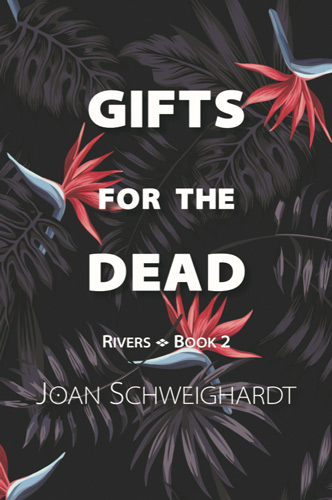 Sometimes our best is not good enough. We make mistakes. The most painful ones are those that harm a loved one. Stress and grief leave us in agony, and we play our choice repeatedly wondering if we made the right decision. We cannot let ourselves off the hook either merely because we are human.
Sometimes our best is not good enough. We make mistakes. The most painful ones are those that harm a loved one. Stress and grief leave us in agony, and we play our choice repeatedly wondering if we made the right decision. We cannot let ourselves off the hook either merely because we are human.
In Joan Schweighardt’s Gifts for the Dead, Irishman Jack Hopper arrives home barely alive and without his brother. What could he have done differently? Guilt-ridden, he needs time to sort through the events in South America’s jungle. In the meantime, his mother and his brother’s sweetheart, Nora, nurse him back to health. They wait patiently to learn specifics of Bax, Jack’s brother. To make matters worse, Nora eased Jack’s pain and he liked it. He had always secretly cared for her more than he should have. As time passes and Jack heals, and the two grow closer until they take a trip to South America where Nora then learns the truth.
Schweighardt is masterful at historical fiction and Gifts for the Dead is an example of her skill. Not only does she entertain with accounts that examine the perplexities of being human with its heartening moments and struggles, but she also inspires thoughts about the human condition.
How does one justify bad choices simply because they are human? Why can we not be better than that, and what about the good that comes from bad choices as a result? Will Jack Hopper find that good thing?
Gifts for the Dead is a thoughtful and entertaining read, especially for those who enjoy historical adventure mixed with suspense and a little romance. A wild escapade that thoroughly entertains.
Review by Christina Francine
Christina Francine is an enthusiastic author of a variety of work for all ages. When not weaving tales, she teaches academic writing at the college level. She’s also a licensed elementary teacher. Picture books: Special Memory and Mr. Inker. Academic: Journal of Literacy Innovation.

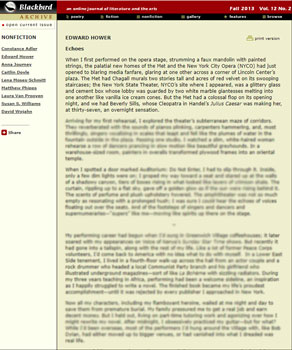 Stepping back in time to 1960s-Manhattan, author and former supernumerary actor with the New York City Opera Company (NYCO),
Stepping back in time to 1960s-Manhattan, author and former supernumerary actor with the New York City Opera Company (NYCO), 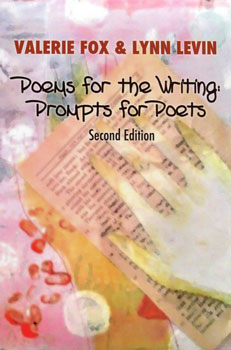 In the second edition of Poems for the Writing: Prompts for Poets (
In the second edition of Poems for the Writing: Prompts for Poets (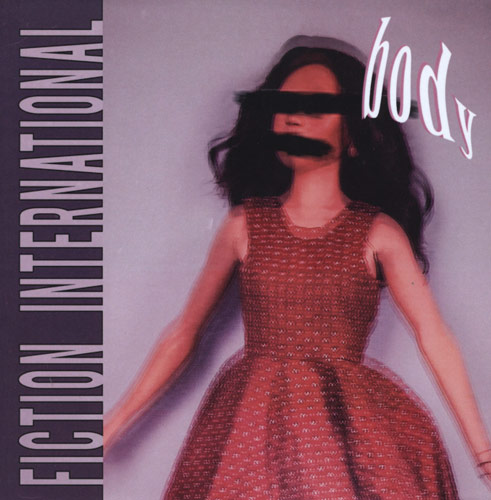 “B.K.” by Robert James Cross stands out in Issue 52 of
“B.K.” by Robert James Cross stands out in Issue 52 of 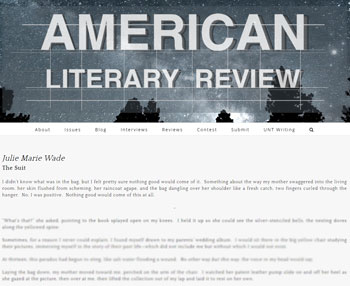 “
“ In the Fall 2019 issue of
In the Fall 2019 issue of  David Salner‘s
David Salner‘s 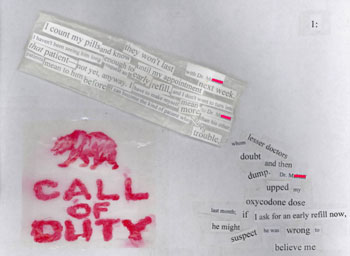 Issue 19.4 of
Issue 19.4 of 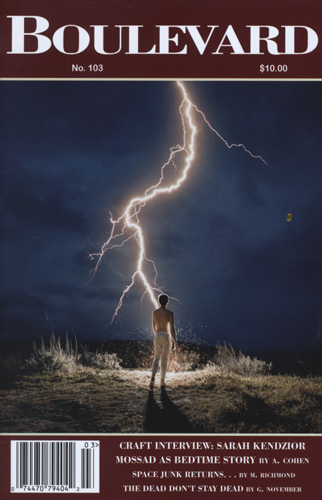 Greg November opens the Fall 2019 issue of
Greg November opens the Fall 2019 issue of 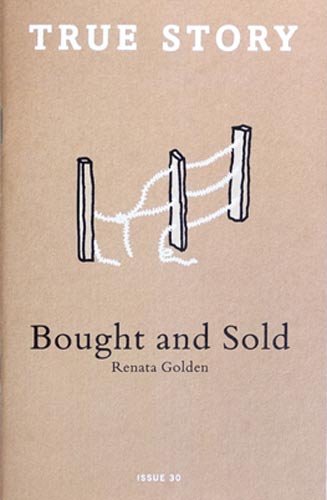 In “
In “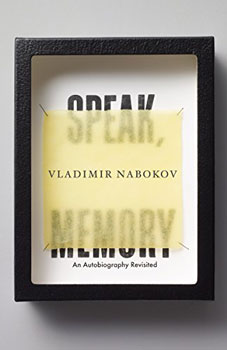 Although published in 1951, any person serious about literature would do well to read or reread Nabokov’s captivating autobiography, if not for the rapture of his complicated life, then for the beauty of his syntactical architecture. A master of form devoted to meaning, Nabokov relays the truths of a man twice removed from his home country of Russia, once by revolution and again with the rise of the iron curtain. He renders through complex but clear sentence structure the pains of diaspora and the call to home which he can never truly answer. Within this beautiful prose he also provides insight into his master works Lolita, Despair, and The Gift. He dangles before the reader a maze of sentences each providing a decadent feast for those who value—above all—the meaning-making capacity of provoking syntax.
Although published in 1951, any person serious about literature would do well to read or reread Nabokov’s captivating autobiography, if not for the rapture of his complicated life, then for the beauty of his syntactical architecture. A master of form devoted to meaning, Nabokov relays the truths of a man twice removed from his home country of Russia, once by revolution and again with the rise of the iron curtain. He renders through complex but clear sentence structure the pains of diaspora and the call to home which he can never truly answer. Within this beautiful prose he also provides insight into his master works Lolita, Despair, and The Gift. He dangles before the reader a maze of sentences each providing a decadent feast for those who value—above all—the meaning-making capacity of provoking syntax.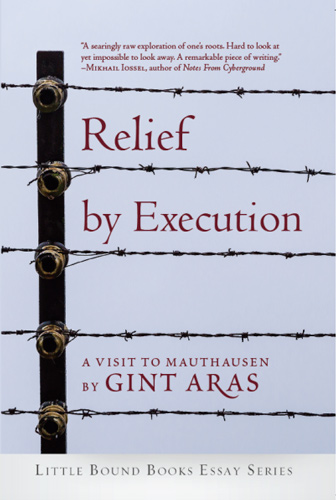 A haunting meditation on the legacy of racism, violence, and abuse,
A haunting meditation on the legacy of racism, violence, and abuse, 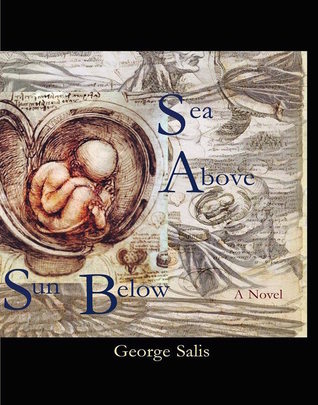
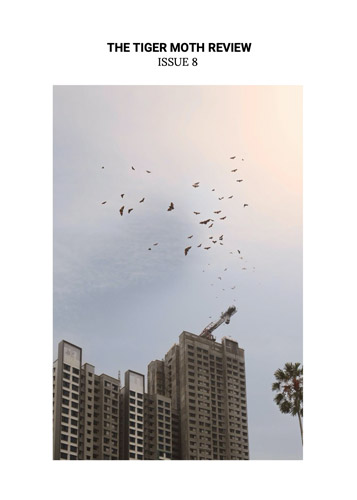 The Tiger Moth Review
The Tiger Moth Review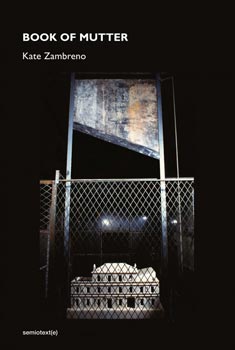 Exploring the complexities and absurdities of grief,
Exploring the complexities and absurdities of grief, 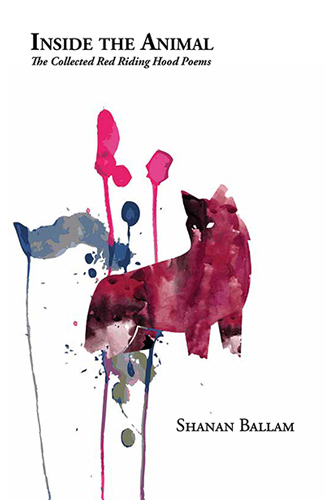 Shanan Ballam’s newest book, Inside the Animal: The Collected Red Riding Hood Papers, published by
Shanan Ballam’s newest book, Inside the Animal: The Collected Red Riding Hood Papers, published by 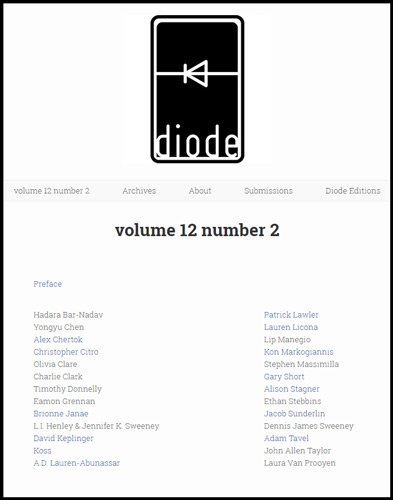 Volume 12 Number 2 of
Volume 12 Number 2 of 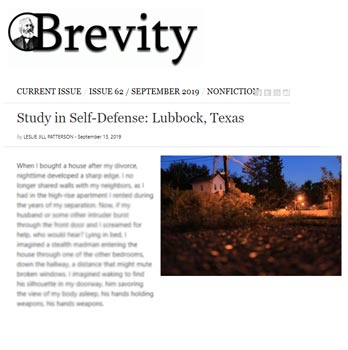 From the introduction to the final sentence, Leslie Jill Patterson’s flash essay,“
From the introduction to the final sentence, Leslie Jill Patterson’s flash essay,“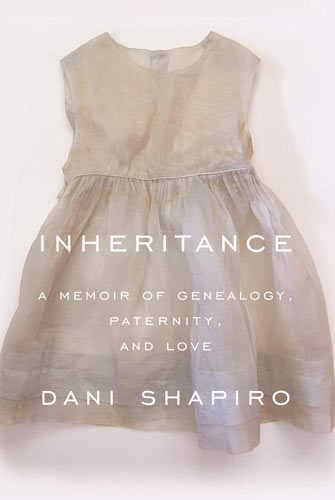 A psychoanalytic spin on the “unthought known” stream of one woman’s stumble upon the narrative of self, reflective of intuitive synchronicity, Inheritance: A Memoir of Genealogy, Paternity, and Love bursts the bubbles of vintage notions of the perfect family, or at least the façade of what the perfect family should have been.
A psychoanalytic spin on the “unthought known” stream of one woman’s stumble upon the narrative of self, reflective of intuitive synchronicity, Inheritance: A Memoir of Genealogy, Paternity, and Love bursts the bubbles of vintage notions of the perfect family, or at least the façade of what the perfect family should have been.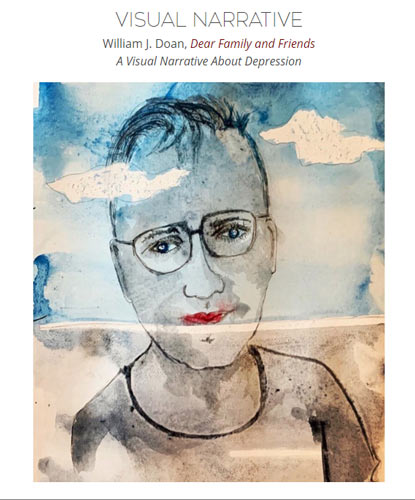 According to William J. Doan’s visual narrative “
According to William J. Doan’s visual narrative “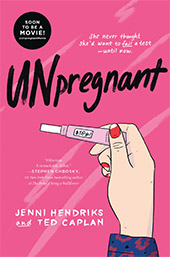 Unpregnant Offers a Radical Normalization of Abortion and Reproductive Health. Currently, we’re in a terrifying moment in history for reproductive health in America, which makes abortion no laughing matter—and that’s exactly why Unpregnant, the debut YA novel by Jenni Hendricks and Ted Caplan, is such a breath of fresh air. Unpregnant tells the tale of an overachieving 17-year-old named Veronica Clarke who discovers that she is pregnant a month before her high-school graduation. Seeing her college education (she’s been accepted to Brown University) and future slipping away, she enlists her former best friend—and current school outcast—Bailey Butler to drive her to an abortion clinic that doesn’t require a parental signature. The only catch? The clinic is more than 900 miles away…
Unpregnant Offers a Radical Normalization of Abortion and Reproductive Health. Currently, we’re in a terrifying moment in history for reproductive health in America, which makes abortion no laughing matter—and that’s exactly why Unpregnant, the debut YA novel by Jenni Hendricks and Ted Caplan, is such a breath of fresh air. Unpregnant tells the tale of an overachieving 17-year-old named Veronica Clarke who discovers that she is pregnant a month before her high-school graduation. Seeing her college education (she’s been accepted to Brown University) and future slipping away, she enlists her former best friend—and current school outcast—Bailey Butler to drive her to an abortion clinic that doesn’t require a parental signature. The only catch? The clinic is more than 900 miles away… 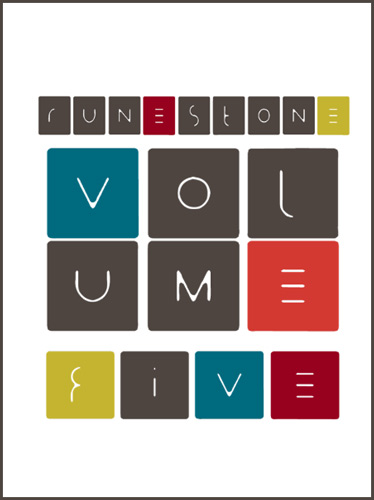 The works in the latest issue of
The works in the latest issue of 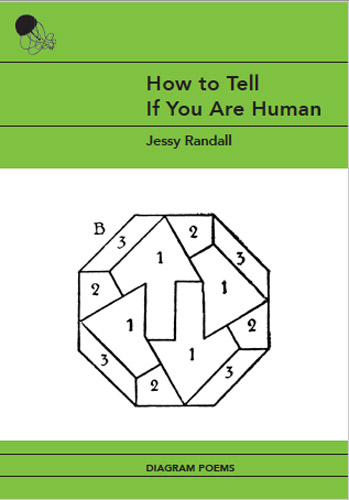 Do you ever find yourself feeling out of sorts, unable to tell if you’re still human?
Do you ever find yourself feeling out of sorts, unable to tell if you’re still human? 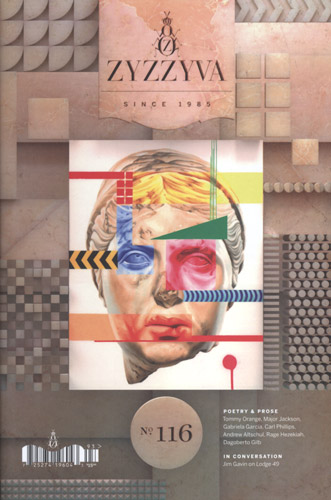 Gabriela Garcia
Gabriela Garcia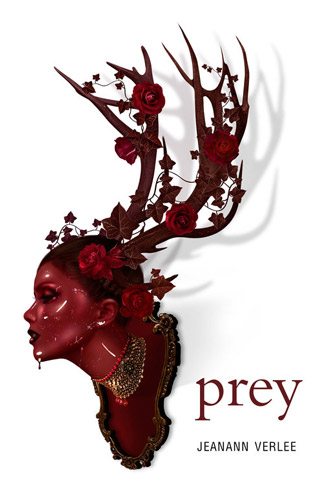 Jeanann Verlee
Jeanann Verlee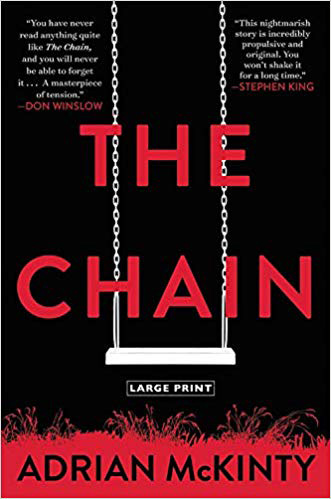 You are now part of The Chain.
You are now part of The Chain.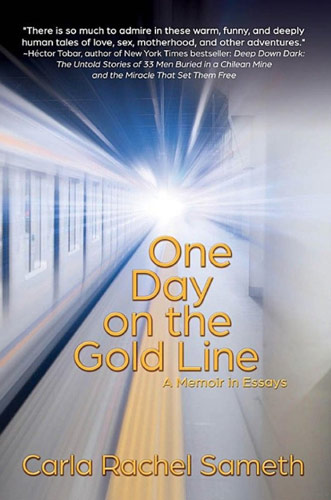 Carla Rachel Sameth’s
Carla Rachel Sameth’s 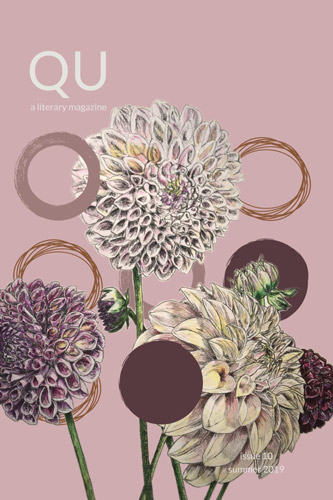 Wrap up your summer and get ready to head back to school with Zac Thompson’s “
Wrap up your summer and get ready to head back to school with Zac Thompson’s “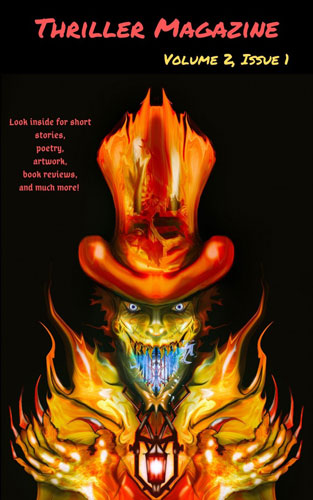 Robb T. White
Robb T. White Two whirlwind prose poems by Leslie Marie Aguilar in the May 2019 issue of
Two whirlwind prose poems by Leslie Marie Aguilar in the May 2019 issue of  CRAFT Literary
CRAFT Literary
 The latest issue of
The latest issue of 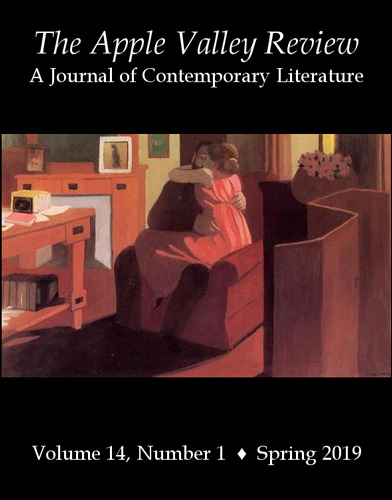 Our families and the people we care about affect much of how we feel or what we do in life, so it’s appropriate that many of the poems in the Spring 2019 issue of
Our families and the people we care about affect much of how we feel or what we do in life, so it’s appropriate that many of the poems in the Spring 2019 issue of 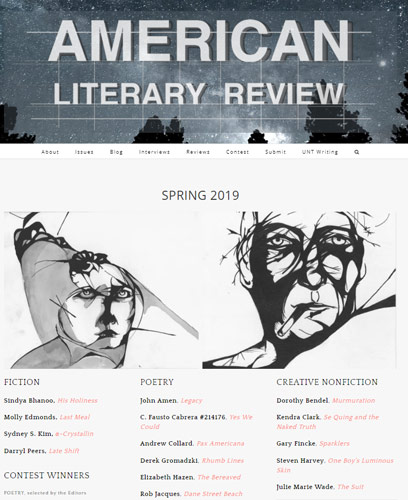 In the latest issue,
In the latest issue, 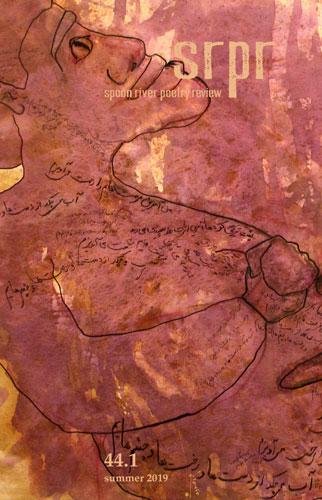 A recent series of poems by Jeannine Hall Gailey in the
A recent series of poems by Jeannine Hall Gailey in the 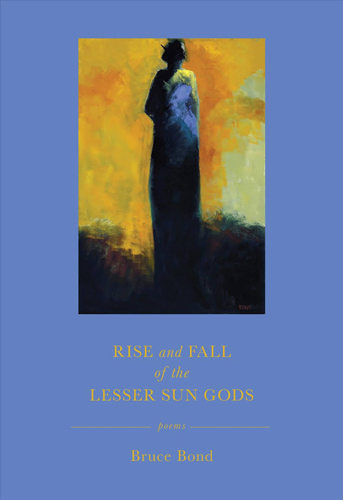 Perhaps it is because this was written in January, and in my part of the world, the temperature was hovering around 0 degrees. Maybe it is the hours I had spent hibernating and devouring hours of classic movies from the 1940s and 50s aired on TCM. Or maybe it’s simply the idea of a ‘radio in the sand’ emitting static and faint music from another place in the universe—Hollywood.
Perhaps it is because this was written in January, and in my part of the world, the temperature was hovering around 0 degrees. Maybe it is the hours I had spent hibernating and devouring hours of classic movies from the 1940s and 50s aired on TCM. Or maybe it’s simply the idea of a ‘radio in the sand’ emitting static and faint music from another place in the universe—Hollywood.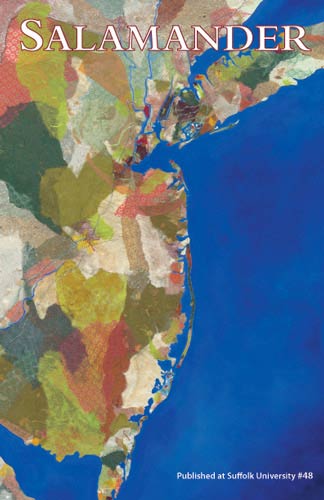 After twenty-seven years, Jennifer Barber has left her position as Editor-in-Chief of
After twenty-seven years, Jennifer Barber has left her position as Editor-in-Chief of 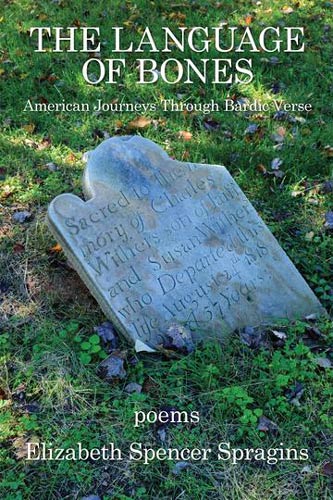 Elizabeth Spencer Spragins’ passion for bardic verse in
Elizabeth Spencer Spragins’ passion for bardic verse in 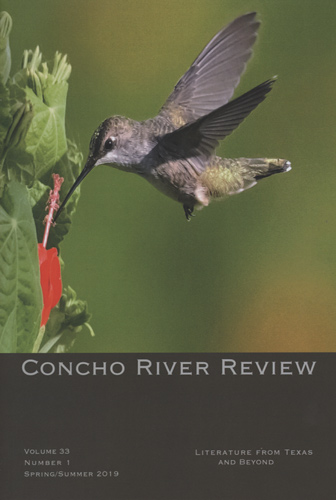 It doesn’t matter if you gravitate toward fiction, nonfiction, or poetry when cracking open a new issue of literary magazine—the Spring/Summer 2019
It doesn’t matter if you gravitate toward fiction, nonfiction, or poetry when cracking open a new issue of literary magazine—the Spring/Summer 2019  I walked into
I walked into 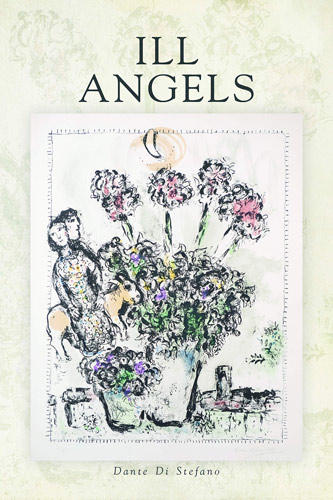 Dante Di Stefano creates a fascinating read of precise opinions and clever phrasing with poetry in his new book,
Dante Di Stefano creates a fascinating read of precise opinions and clever phrasing with poetry in his new book, 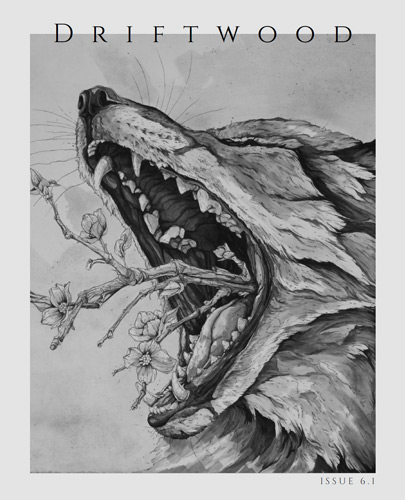 In 2018,
In 2018, 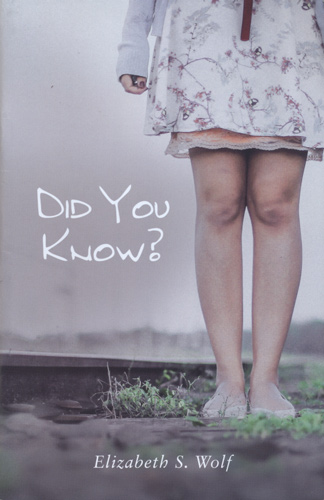 Subscribers to
Subscribers to 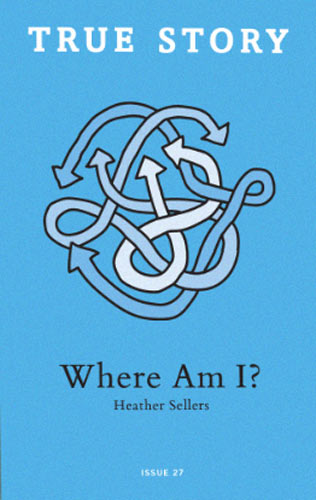 If my mother and I walk out of a store into the center of the mall or exit a building onto any town’s main street, there’s a 95% chance she’ll ask me which way we came from and which way we’re now headed. If we park in a crowded lot, she follows as I lead to her hidden car. When I’m with her, I am the navigator, the way-finder.
If my mother and I walk out of a store into the center of the mall or exit a building onto any town’s main street, there’s a 95% chance she’ll ask me which way we came from and which way we’re now headed. If we park in a crowded lot, she follows as I lead to her hidden car. When I’m with her, I am the navigator, the way-finder.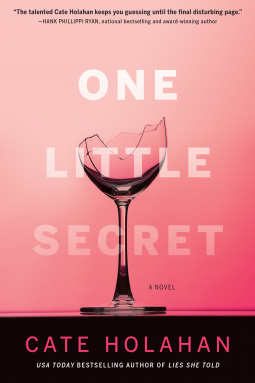 “People in glass houses should not throw stones”
“People in glass houses should not throw stones”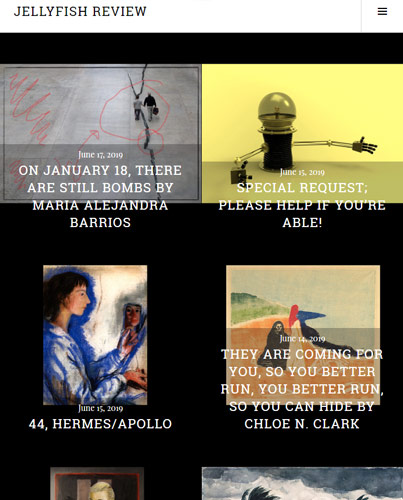 In response to the recent abortion bans in the United States,
In response to the recent abortion bans in the United States, 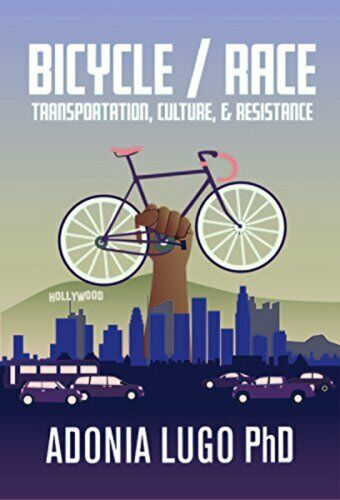 In “
In “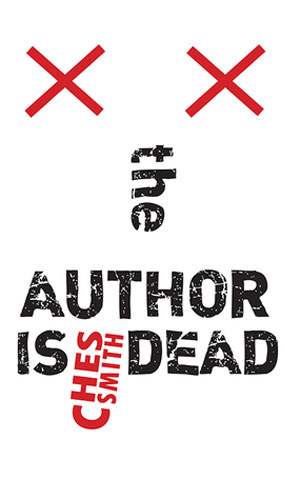 It’s nothing new for a novel’s key character to share his name with the book’s author. Past examples are Stephen King in Song of Savannah, Paul Auster in New York Trilogy, and Philip Roth in Operation Shylock. But
It’s nothing new for a novel’s key character to share his name with the book’s author. Past examples are Stephen King in Song of Savannah, Paul Auster in New York Trilogy, and Philip Roth in Operation Shylock. But 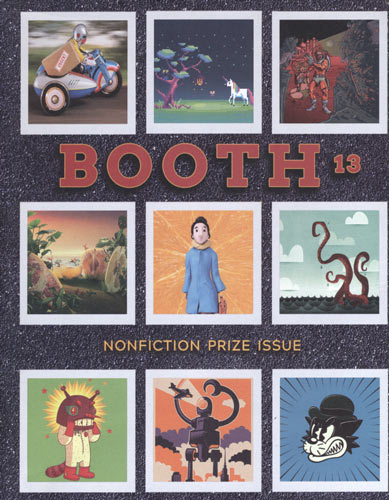 The cover of
The cover of